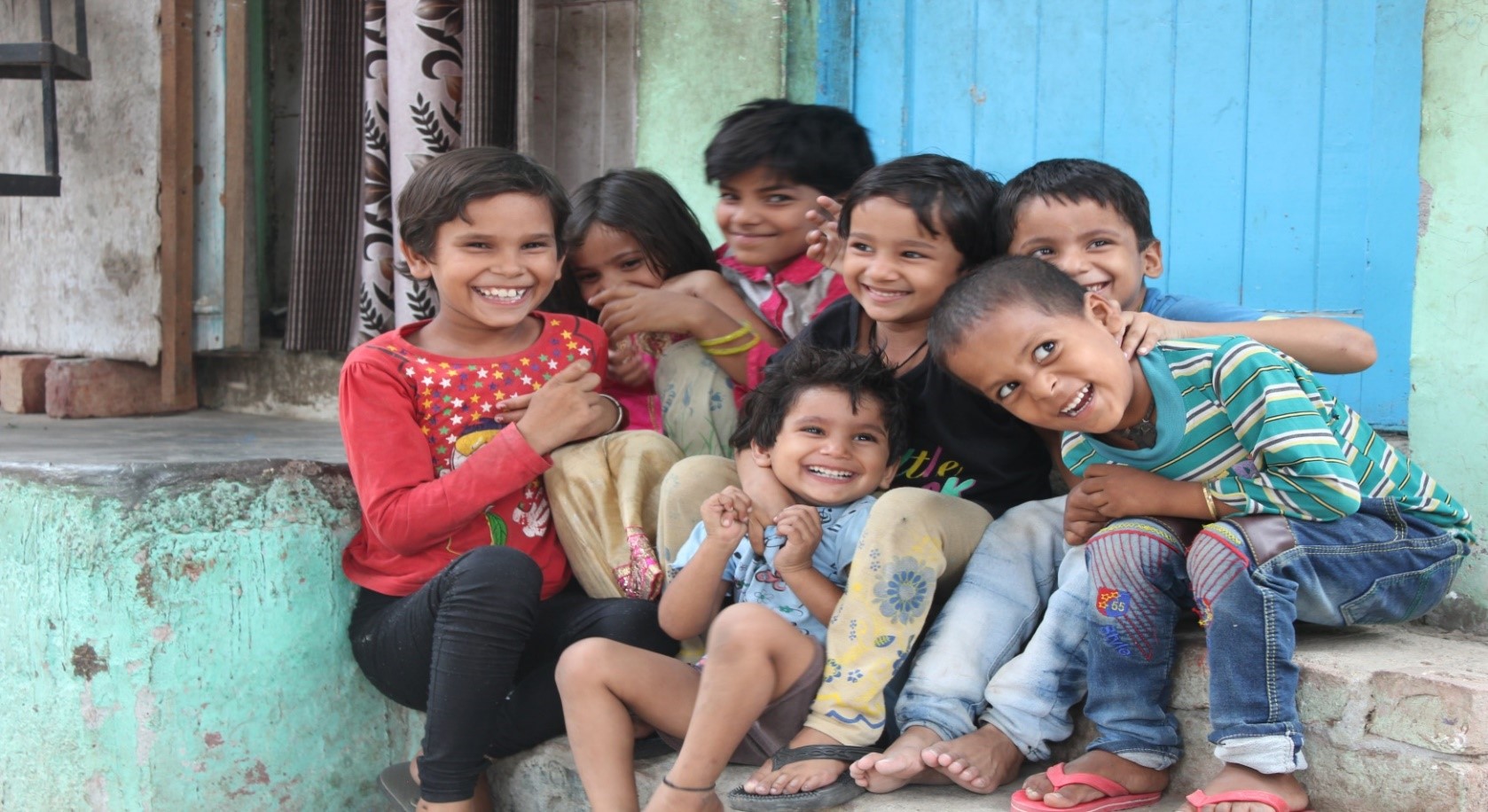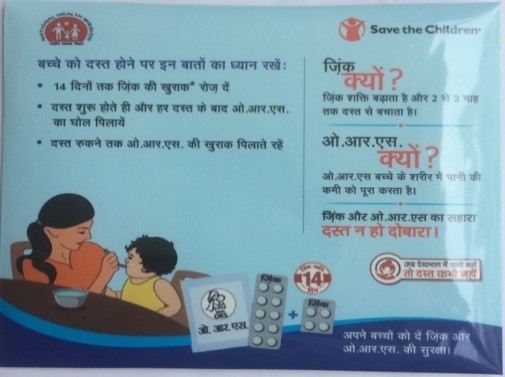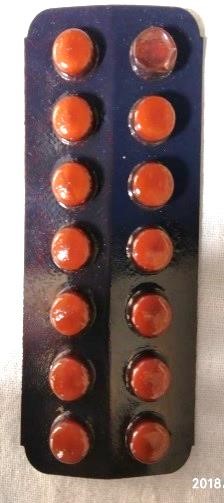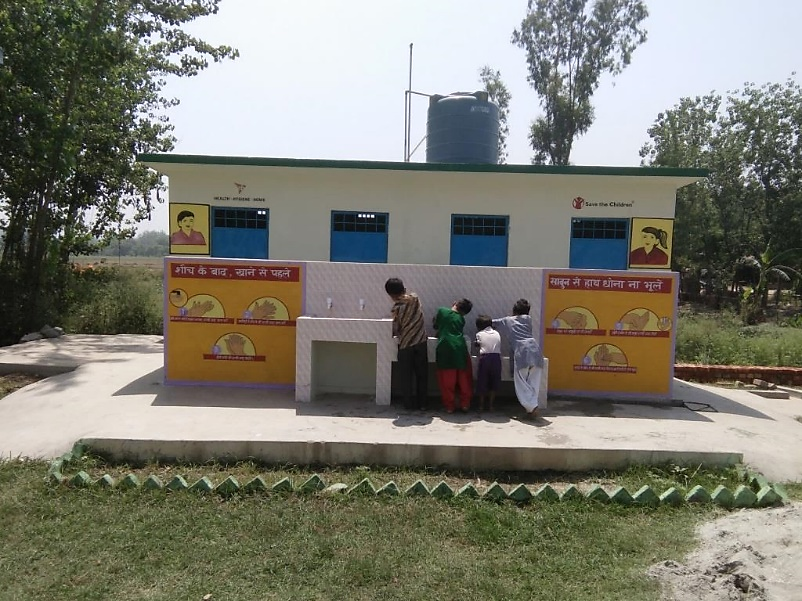
Stopping Diarrhoea, Saving Lives

The Stop Diarrhoea Initiative (SDI), a project by Save the Children, India, aimed to showcase the WHO/UNICEF Seven-Point Plan as the most effective strategy to comprehensively prevent and treat childhood diarrhoea. The project contributes to Save the Children’s global ambition to remove diarrhoea as a leading cause of death amongst children.
The project tested the effectiveness of the WHO-UNICEF Seven-Point Plan to prevent and treat diarrhoea; collated evidence to demonstrate proof of concept and value for money; and advocated for the state and national government and its partners to replicate and scale up the approach.
Baseline and endline survey results show reduced diarrhoea prevalence by 62 percent in intervention areas, which is 21 percent higher in control areas. The predictive analysis of SDI revealed that the programme prevented approximately 16,000 cases of diarrhoea in the intervention area and lowered diarrhoea-related mortality by 15%.
India ranks high on the global list of deaths due to diarrhoea and pneumonia, where diarrhoea alone is responsible for 9 percent of under-5 deaths. Out of around a half million of these deaths globally, around 100,000 occur in India, which is approximately 275 daily deaths or 11 deaths every hour. The World Health Organization (WHO) estimates that around 88% of deaths from diarrhoea are attributable to four issues: consumption of unsafe water; inadequate sanitation; poor personal hygiene; and lack of access to childhood immunization as a preventative measure. While India has made considerable progress in increasing access to safe drinking water sources, hygiene and sanitation practices and immunization through various government programmes, the convergent implementation of multi-sectoral interventions for better public health result is still limited.
High-impact, low-cost, easy-to-adapt and scalable interventions implemented by SDI, using the WHO/UNICEF Seven-Point Plan as a framework, has been instrumental in bringing down the prevalence of diarrhoea.
SDI introduced low-cost, co-packages of oral rehydration solution (ORS) and zinc to increase low use rates of both medicines and improve adherence of zinc for 14 days.
 The Stop Diarrhoea Initiative developed this prototype for co-packaged ORS and zinc.
The Stop Diarrhoea Initiative developed this prototype for co-packaged ORS and zinc.
 14-count zinc strips made it easier to handle and dispense the full course of treatment to families.The introduction of 14 tablet zinc strips in few project locations was an improvised adjustment to 10+4 packaging, making it easier to handle and dispense to families with children suffering from diarrhoea.
14-count zinc strips made it easier to handle and dispense the full course of treatment to families.The introduction of 14 tablet zinc strips in few project locations was an improvised adjustment to 10+4 packaging, making it easier to handle and dispense to families with children suffering from diarrhoea.
Strengthening water, sanitation, and hygiene services also had an inordinate impact on diarrhoea prevalence in project locations. Improved counseling services by frontline health workers on handwashing with soap, usage of safe drinking water, managing hygiene and sanitation have bettered health behaviors and practices among communities. In the SDI intervention areas, the awareness level on hand washing with soap and water has improved up to 98%, and more than 85% of health workers are managing diarrhoea as per national guidelines.
WASH infrastructure such as community-managed toilets, individual household toilets, and even School Sanitary Blocks for school children, improved access to hygiene and sanitation. WASH user groups formed from all sections of society acted as a catalyst for behavior change on WASH practices, operations, and maintenance of the community WASH infrastructures, resulting in improvement in safe sanitation practices up to 84%. The simple and innovative design of SDI’s Age-Appropriate Hand Washing Platforms constructed in schools and in communities help improved the access to handwashing by children in an easier way.
 Age-appropriate handwashing and toilet facilities improved WASH access for schoolchildren.Also, equipping local governance with accountability mechanisms like a community score card, in coordination with frontline workers for decision making, joint planning and monitoring of services delivered at community level, provided an opportunity for community representatives to actively participate in quality delivery of health and WASH-related services. Engaging youth volunteers of villages to mobilize communities especially on WASH behaviors also propelled the preventive and protective health behaviors among the communities.
Age-appropriate handwashing and toilet facilities improved WASH access for schoolchildren.Also, equipping local governance with accountability mechanisms like a community score card, in coordination with frontline workers for decision making, joint planning and monitoring of services delivered at community level, provided an opportunity for community representatives to actively participate in quality delivery of health and WASH-related services. Engaging youth volunteers of villages to mobilize communities especially on WASH behaviors also propelled the preventive and protective health behaviors among the communities.
Convergence and shared accountability among concerned ministries and departments for their respective contributions is a prerequisite to success of such programmes, as well as working together towards quality service delivery in an integrated manner.
Key learnings and recommendations
- Inclusion of co-packaged ORS and zinc in the Essential Medicine List (EML) at the national and State levels
- Inclusion of 14-tablets zinc strips in national guidelines for diarrhoea treatment and control
- Strengthened counseling on handwashing with soap, safe drinking water, hygiene, and sanitation integrated into service delivery of frontline health workers
- Community involvement in planning, implementation, and monitoring of interventions; accountability mechanisms to encourage local government to coordinate with frontline health workers for decision making, joint planning, and monitoring of services delivered at community level
- Convergence and coordination among departments for improving access to hygiene and sanitation behaviors


